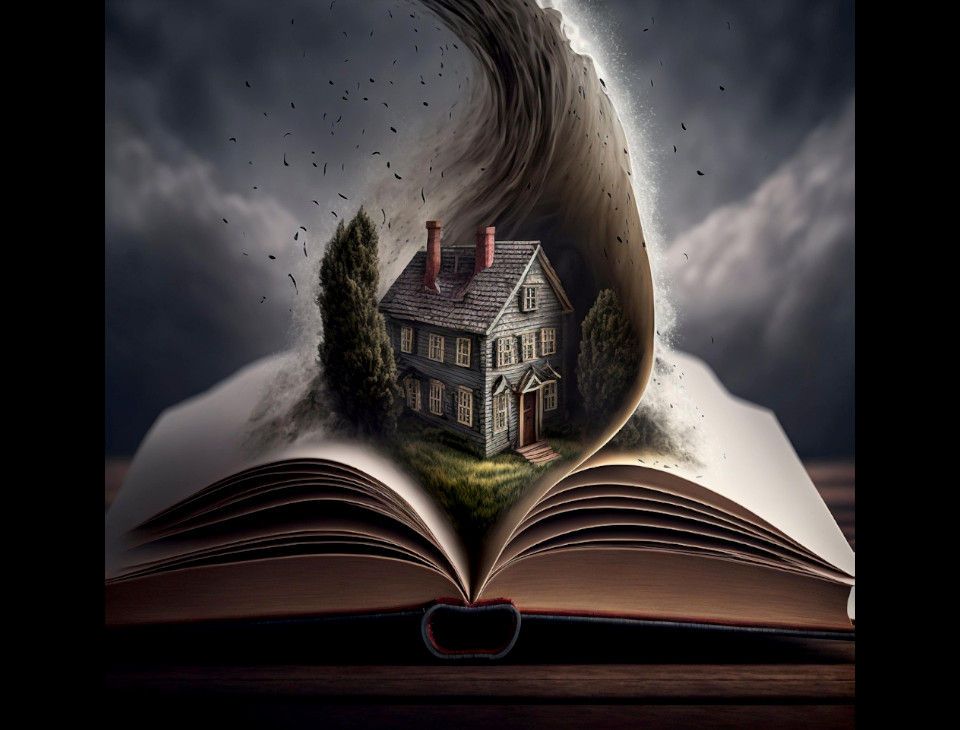Frame Narrative and the Struggle for Control in Fiction
- Niteen Hatle
- Sep 23, 2025
- 6 min read

Fiction often thrives on chaos, conflict, and contradiction, and one of the most compelling struggles you find is the battle for control. Characters try to hold on to their identities, shape their destinies, or fight against forces bigger than themselves.
This struggle is not only fascinating for readers, but also creates layers of meaning when paired with a frame narrative. By exploring how stories within stories highlight control, you discover deeper truths about human nature, storytelling, and the fragile balance of power.
In this post, you will dive into how control shapes fictional characters, why it matters for storytelling, and how frame narratives amplify the tension. You will also explore examples, patterns, and techniques that make this theme one of the most unforgettable devices in literature.
Control as the Heart of Fiction
When you think about why stories matter, you quickly realize that fiction is about people making choices. These choices are driven by control, whether it is control over circumstances, relationships, or even destiny. Without control or the illusion of it, characters would drift aimlessly, and readers would quickly lose interest.
You often see characters fighting to control their environment, like a detective piecing together a mystery or a king maintaining authority. The need for control is universal and mirrors the struggles you face in everyday life.
That is why you find yourself empathizing with characters who try to change their fate, resist manipulation, or simply hold their ground against overwhelming odds.
The frame narrative adds another fascinating layer to this. When a story is told within a story, you suddenly see two levels of control: the characters inside the tale and the storyteller shaping what you hear. This constant tension between what is narrated and who narrates it raises questions about truth, reliability, and manipulation.
Power Struggles and Human Nature
Every great story is essentially a power struggle, and these struggles reflect the human condition. When you read novels or watch films, you often identify with characters caught between their desire for freedom and the forces that restrict them. This is the classic struggle for control, and it makes fiction mirror reality more closely than you might expect.
Think about how often you face situations where control feels just out of reach. Maybe you work hard, but outcomes depend on someone else’s decisions. Fiction reflects that same anxiety. Characters become memorable when they react to losing control or desperately try to claim it back.
The frame narrative structure intensifies this battle by letting one narrator control the way another’s story is told. You might read about a character’s inner fight, only to realize that someone else is editing, filtering, or manipulating how you experience it. This makes you question whether control is ever truly possible, both for the characters and for you as the reader.
Frame Narrative as a Battleground

A frame narrative is not just a storytelling trick—it is a battlefield for control. The storyteller in the outer frame decides what parts of the inner story you get to see. In many cases, this creates conflict because the storyteller might be unreliable, biased, or withholding information.
When you experience a frame narrative, you are always aware of two voices at play. The character within the story struggles for control over events, while the outer narrator exerts control over how those events are presented. This duality can feel unsettling, but also incredibly engaging because you know there are hidden layers beneath the surface.
For example, in novels, where a character recounts someone else’s story, you are left wondering how much control the inner character had versus how much power the narrator takes away. This constant tension makes frame narratives rich and endlessly interpretable.
The struggle for control becomes not just the character’s problem, but also a problem of storytelling itself. Who controls the truth of a story? Who gets to decide what is left out? These questions echo long after you close the book.
Control and Character Development
The struggle for control in fiction often defines character growth. Characters who start powerless may gain control through resilience, intelligence, or sheer determination. Others may lose control gradually, showing how fragile power can be. You, as a reader, connect deeply with these arcs because they mirror the highs and lows of real life.
In a frame narrative, this growth can be filtered or reshaped depending on the storyteller’s choices. You may see a character painted as weak when they might have been strong or vice versa. This creates multiple layers of interpretation and makes you question whether the version of the character you see is complete.
This is why frame narratives often carry themes of manipulation and truth. You never know whether the story reflects the character’s real struggle for control or someone else’s version of it. The tension between perception and reality keeps you hooked.
The Illusion of Control in Storytelling
You may think control is about power, but often fiction teaches you that control is an illusion. Characters may plan, strategize, or fight hard, but external forces like fate, society, or nature intervene. The same is true in storytelling, where narrators may appear to control the narrative, but sometimes reveal their own limits.
In a frame narrative, the illusion of control is even more pronounced. The outer storyteller appears to have power over the inner tale, but even they might be bound by circumstances. Maybe they are retelling a memory, a diary, or a tale passed down to them. In these cases, control becomes fragile, and readers like you are invited to see the cracks in the narrative’s authority.
This illusion resonates with you because life often works the same way. You may plan everything carefully, but unexpected events reshape outcomes. Fiction mirrors that uncertainty, showing you that control is never absolute.
Conflict Between Narrator and Reader
One of the most fascinating aspects of frame narratives is the conflict they create between narrators and readers. As a reader, you naturally want control—you want to understand, analyze, and decide who is right or wrong. But the narrator in the frame narrative can withhold, distort, or manipulate information, leaving you uncertain.
This tension creates a mental tug-of-war. You ask yourself whether you are uncovering the truth or being led astray. The narrator’s struggle for control directly clashes with your struggle to make sense of the story.
The beauty of this lies in how it makes you an active participant in the storytelling. You are not just absorbing a tale—you are negotiating control with the narrator. That dynamic makes frame narratives particularly powerful and unforgettable.
Everyday Parallels: Why Control Resonates With You
The struggle for control in fiction resonates because it mirrors your own life. You know the frustration of not being able to control everything, from work deadlines to personal relationships. Stories that show characters wrestling with the same challenges feel authentic and comforting.
Frame narratives enhance this relatability by showing you how control over storytelling itself can slip away. Just as you cannot control how others tell your story in real life, characters cannot always dictate how their experiences are framed. This makes fiction more human, more layered, and more believable.
You see yourself in those struggles, and that recognition is why stories about control linger in your mind long after finishing them.
Final Thoughts: Why Frame Narratives Deepen the Struggle for Control
The struggle for control in fiction is timeless because it reflects your deepest fears and desires. Whether characters fight destiny, resist manipulation, or try to assert their voice, they remind you of your own search for stability and freedom.
The frame narrative makes this struggle even richer by adding multiple layers of control. It forces you to think about who tells the story, how much truth is revealed, and whether control is ever real or always an illusion.
When you encounter frame narratives, you are not just reading a story—you are entering a layered game of control, manipulation, and interpretation. This makes the struggle for control one of the most compelling themes in literature, and it explains why frame narratives continue to fascinate readers across time.
So next time you read a story within a story, ask yourself: who really controls the tale, and who is merely being controlled? That question will not only make you a more thoughtful reader but will also show you how fiction echoes the struggles of life itself.
Click the heart button to the bottom right if you liked the blog post.
Subscribe to get notified about new blog posts and other updates.







Comments